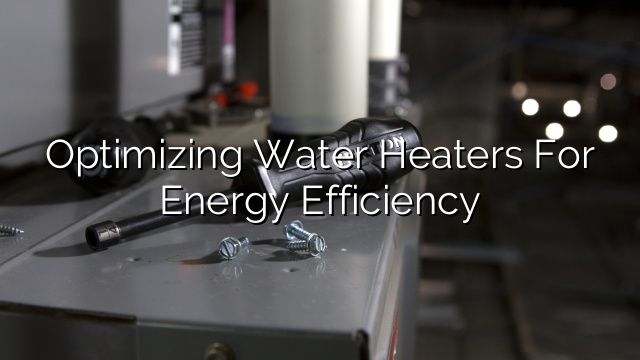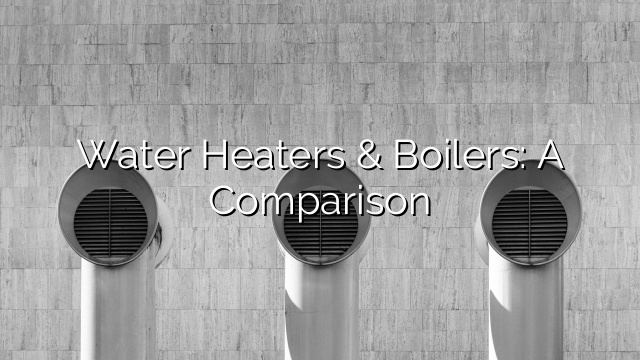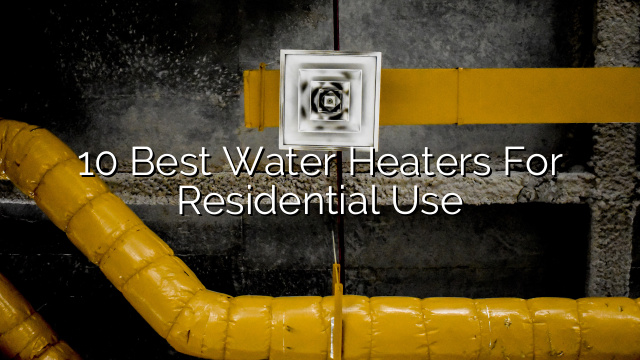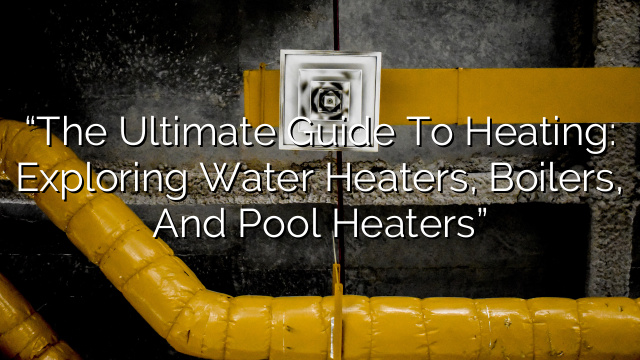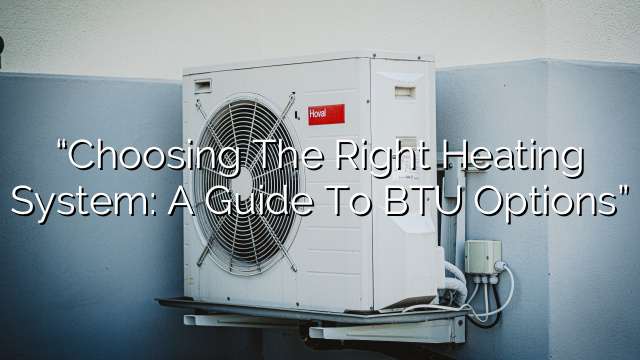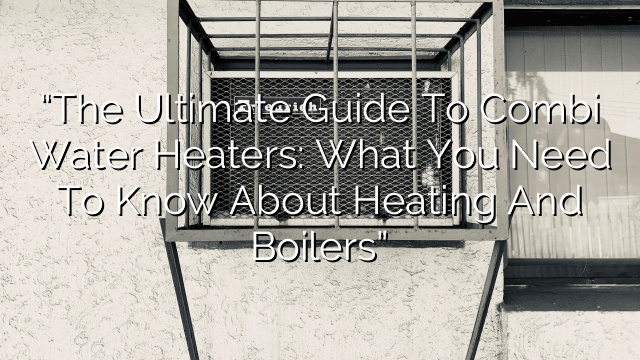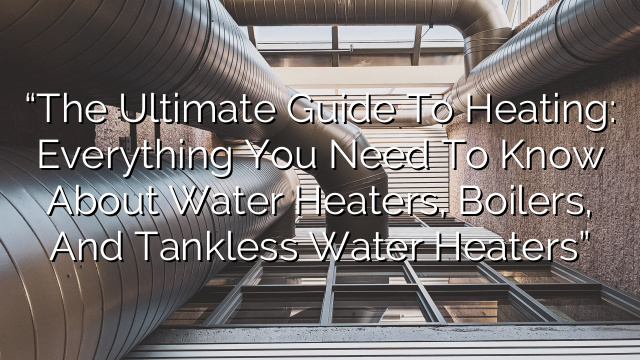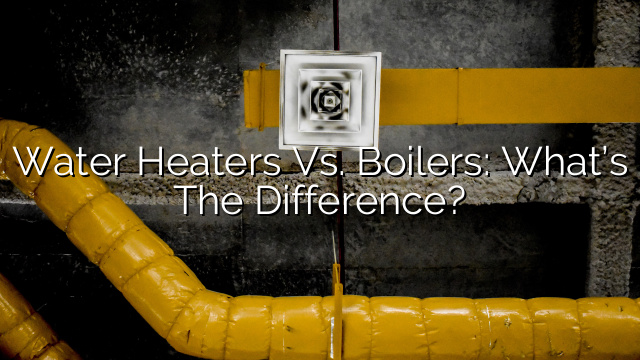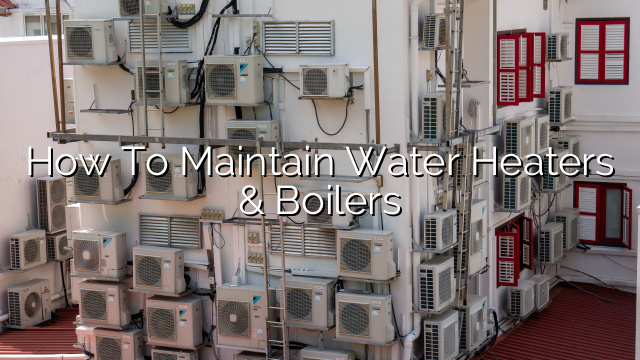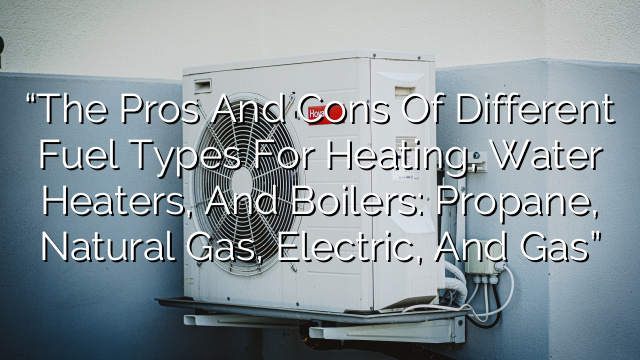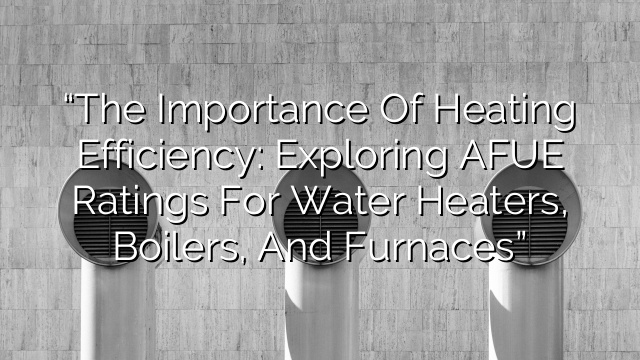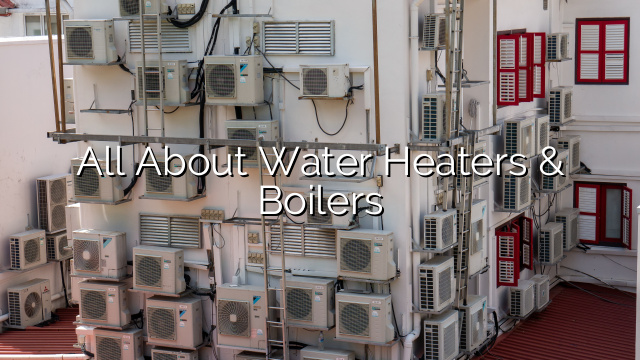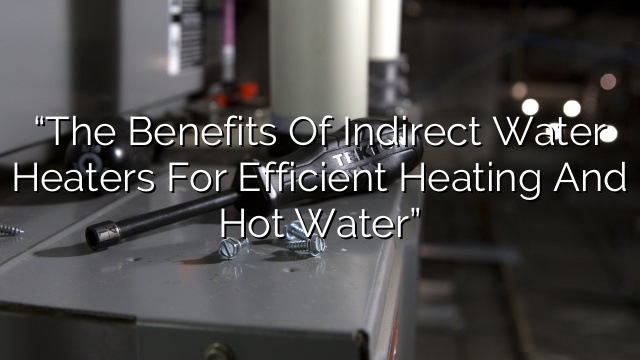Introduction
Water heaters are essential appliances in homes and businesses that provide hot water for various purposes, such as bathing, cooking, and cleaning. However, they can be a significant source of energy consumption, leading to high utility bills and environmental impact. Fortunately, there are ways to optimize water heaters for energy efficiency, minimizing energy usage and costs while reducing carbon emissions.
1. Insulate the Tank
One of the simplest yet most effective ways to optimize water heaters for energy efficiency is by insulating the tank. Most water heaters lose heat as hot water sits unused in the tank. By adding an insulating jacket or blanket around the tank, you can significantly reduce heat loss, resulting in less energy required to keep the water hot. Be sure to follow the manufacturer’s recommendations and safety guidelines when installing the insulation.
2. Lower the Temperature
The default temperature setting on many water heaters is unnecessarily high. Lowering the temperature of the water can significantly reduce energy consumption without sacrificing comfort. The Department of Energy recommends setting the water heater thermostat to 120°F (or 49°C) for optimal energy efficiency. By reducing the temperature by just a few degrees, you can save energy and prevent scalding accidents.
3. Use a Timer
Installing a timer on your water heater is another effective way to optimize energy usage. A timer allows you to schedule when your water heater turns on and off, ensuring that it operates only when hot water is needed. For instance, you can set the timer to turn the heater on in the morning before you wake up and turn it off when everyone is at work or school. This way, the water heater doesn’t waste energy heating water during periods of low demand.
4. Insulate Hot Water Pipes
In addition to insulating the water heater tank, insulating the hot water pipes can further improve energy efficiency. When hot water travels through uninsulated pipes, it loses heat along the way, resulting in energy waste. By insulating the pipes, you can keep the hot water hot for longer, reducing the need for the water heater to work harder and consume more energy.
5. Regular Maintenance
Regular maintenance is crucial for optimizing the energy efficiency of water heaters. Over time, sediment can accumulate in the tank, reducing its efficiency and lifespan. Flushing the tank annually can remove sediment buildup and improve the heater’s performance. Additionally, inspecting and repairing or replacing any faulty components, such as the pressure relief valve or thermostat, can ensure that the water heater operates optimally.
6. Invest in a High-Efficiency Water Heater
If your current water heater is old or inefficient, it may be worth investing in a high-efficiency model. Modern water heaters come with advanced features and technologies that significantly improve energy efficiency. Some examples include tankless water heaters, heat pump water heaters, and solar water heaters. While these options may have a higher upfront cost, they can provide long-term energy savings and reduce your carbon footprint.
Conclusion
Optimizing water heaters for energy efficiency is not only beneficial for your wallet but also for the environment. By implementing simple yet effective strategies such as insulating the tank, lowering the temperature, using a timer, insulating hot water pipes, and performing regular maintenance, you can minimize energy consumption and reduce your carbon footprint. For those looking to make a more significant impact, investing in a high-efficiency water heater can provide even greater energy savings. Start optimizing your water heater today and enjoy the long-term benefits of reduced energy bills and environmental sustainability.

